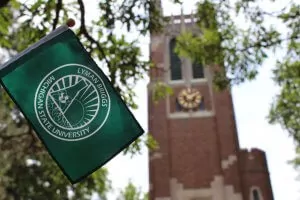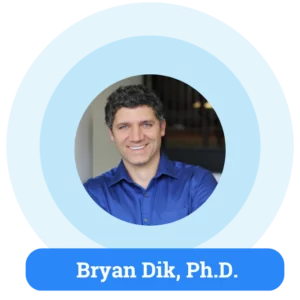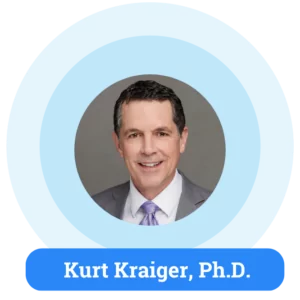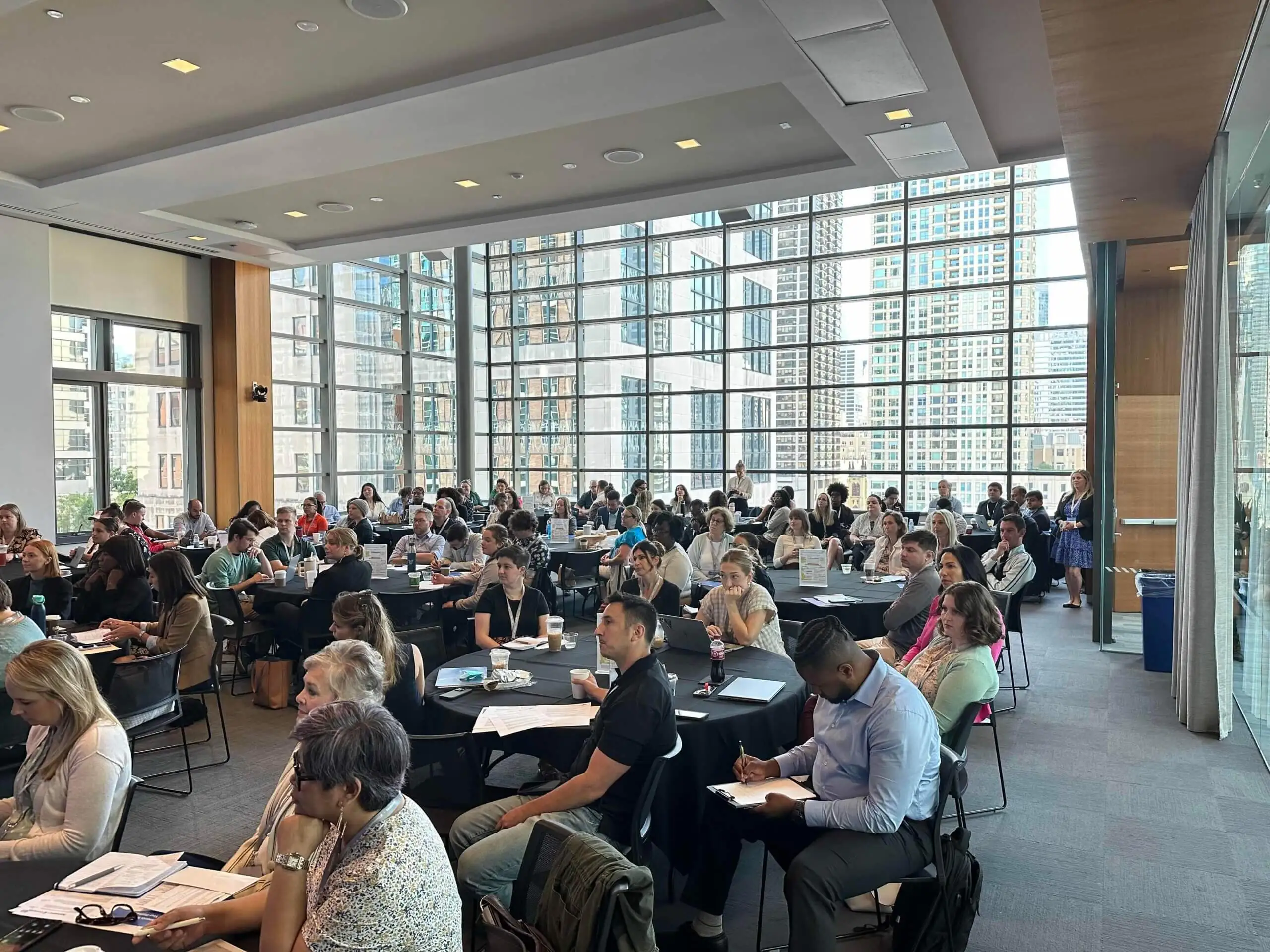Q&A
What's been described seems like an assumed value-based approach to careers. For example, to want “meaningful” work that is interesting/exciting/passionate is reflective of a value that one needs to value their work. How do you navigate different views about work from individuals Including cultural considerations?
Dik/Kraiger: To navigate different views about work, including cultural considerations, it's important to recognize the cultural diversity in how people perceive the centrality of work. For instance, in a cross-cultural example involving a Serbian basketball player, Nikola Jokić, who prioritized family time over work, we see the contrast between American and European perspectives on work-life balance. (Jokić places a premium on family time to a greater extent than what American’s might expect from an NBA player.)
While acknowledging cultural variations, it's worth noting that research, particularly with younger individuals in the US, suggests that many people seek meaning in their work. This aspiration for meaningful work can be understood in terms of concepts like flow and engagement, where individuals feel more motivated and connected to their tasks when they find them interesting and enjoyable.
The key takeaway is not to impose a singular value structure but rather to encourage individuals, including students, to pursue work that aligns with their interests and values. When people are engaged and satisfied with their work, they are more likely to invest time and effort into it. This approach respects cultural differences while emphasizing the importance of connecting individuals with work that they find meaningful and enjoyable, ultimately contributing to their ongoing commitment and satisfaction.
Purpose as a student, and later in one’s career, also seems like a key priority from an alumni/institutional development perspective. Do you have any data or case studies of institutions innovating at the intersection of career services and alumni engagement?
Dik/Kraiger: Certainly, the intersection of career services and alumni engagement is an area where many institutions are innovating to help students find purpose during their academic journey and beyond. By incorporating innovative solutions like PeopleGrove into their strategies, institutions can leverage technology to enhance the effectiveness of their career services and alumni engagement initiatives. Community engagement platforms streamline processes, improve accessibility, and promote meaningful connections, ultimately contributing to the pursuit of purpose both as students and throughout alumni careers.
How do words like passion and culture factor into measuring ways to find purpose by Interests and Value. Are they interchangeable?
Dik/Kraiger: While passion, culture, interests, and values are interrelated, they are not interchangeable. Passion often emerges when an individual's interests and values are in harmony, and culture can significantly influence how and where an individual can pursue these interests and values to find purpose in their career. Dik and Kraiger's framework helps in understanding these dynamics, emphasizing the importance of aligning personal traits with environmental factors to achieve vocational satisfaction and purpose.
Many of our students are also first gen and feel called to be nurses (want to help people): But some don't have the aptitude to be successful in the sciences. It can be difficult to get them to consider alternatives that may not result in a similar salary. How do you address that?
Dik/Kraiger: The key is to understand that purpose is not solely defined by a profession. For instance, students drawn to nursing due to a desire to heal and help can fulfill this calling through various pathways, not just nursing. It's crucial to provide these students with accurate, up-to-date information about alternative careers that align with their underlying motivation to heal and help.
While alternative paths might offer different salary scales, informed decision-making is essential. Students, with guidance from advisories and mentors, should explore these options, weighing factors like potential income against their commitment to their calling. The focus should be on finding a balance between financial viability and staying true to one's sense of purpose.
We use MBTI as our primary tool. Doesn't it measure things that show us a proper career recommendation?
Dik/Kraiger: MBTI could be used for self-reflection, but it was not designed for making career path recommendations. Research confirms that matching on interests and values is the most useful for predicting career satisfaction. In short, MBTI is not valid for-and by its own manual not designed for-career discovery.
Kurt has written about it here. In this piece, Kurt reaches the same conclusion as many with science training: the use of the MBTI for career guidance has no rational foundation in theory or research. Individuals who are MBTI certified have different perspectives. But we would encourage your institution to explore other tools that provide valid assessments and are backed by scientific methods.
What assessment tools do you use to help students evaluate their interests and their values?
Dik/Kraiger: There are a number of different instruments and tools out there, including several valid ones and many less-valid ones. We may be biased, but we believe we have the best science-backed solution. PathwayU uses psychologically sound measures, validated by science, to help students understand themselves, explore career options, and make career choices. Our career matches are based on a patented algorithm that uses a student’s interests and values to suggest occupational paths they will find interesting and meaningful.
What role do religious beliefs play in finding and pursuing purposeful work?
Dik/Kraiger: Religious beliefs can deeply impact how individuals view their work, the career choices they make, and how they find purpose and fulfillment in their professional lives. This influence can be seen in the alignment of careers with personal values, the pursuit of vocations that are felt to be spiritually rewarding, and the application of religious principles in workplace decision-making. Bryan explored these themes from a Christian perspective in this resource ; here is another that explores work as a calling through the lenses of eight faith traditions.
Bryan, can you mention again the role of the facilitator - you said to discuss what is being measured but what was the other piece, please?
Dik: Bryan mentioned that the facilitator's role is 1) to explain what is being measured in the assessment, 2) to explain how the scores are presented on the profile, and then, 3) to engage the student in a reflective process.
That last part involves asking effective, open-ended questions that invite the student to evaluate and apply their scores by connecting them to their own experiences. Some examples of these questions include, "What's your reaction to this? How does this fit with your experience? Give me an example of that."
How do you believe personality fits into this picture?
Dik/Kraiger: Personality plays a crucial and complementary role in shaping a student's career path and sense of purpose, but personality traits are more useful in helping students achieve success within their chosen career path than in helping them decide which career path to choose. Our reading of the research suggests that interests and values influence career choice (functioning like the rudder in Strong’s boat analogy), whereas personality and abilities influence success within one’s chosen path (functioning like the motor in the analogy).
What changes have you noted over time? Are students arriving at college with less information about their own traits, interests, values? If so, what has changed and what is the appropriate level of intervention (before college, before HS, etc?). Self exploration at college costs a great deal, as tuition each semester rises. Students don't have endless budgets for self exploration prior to decision making while at college.
Dik/Kraiger: While there may be a trend of students arriving at college with less clarity about their personal traits, interests, and values, interventions at various educational stages can help mitigate this issue. Early and continued support, coupled with affordable and accessible resources, can enable students to make more informed decisions about their career paths, reducing the financial and time burden associated with self-exploration during college. It is worth noting as well that developmental readiness plays a role, reinforcing the need for early and continued support before and during the college experience.
I know that in the past decade much of the research centered around "sophomore year" being a pivotal year to focus these conversations. What are you seeing the research saying right now -- and, how are you seeing schools effectively partner/connect with Admissions/ prospective students in this deep/important work of connections/purposeful work and value of an education as well? (Thank you for this conversation!!)
Dik/Kraiger: While the sophomore year remains important for career conversations, there's a growing consensus on the need for earlier and continuous engagement. The changing job market and economic pressures necessitate a more proactive approach, starting before college and involving various stakeholders, including admissions, to ensure that students make the most informed and economically feasible decisions regarding their education and career paths.
What are your thoughts on delivering the values, strengths, aptitude discussion/analysis during the first year. We have found students aren't necessarily ready to have that discussion in the first year, but that is also when we struggle to retain students.
Dik/Kraiger: First-year students may not be fully ready for in-depth analysis of their values, strengths, and aptitudes; introducing these discussions early on, in a phased and supportive manner, can be beneficial for both their personal development and retention. This is one reason why we recommend integrating career development with upper division coursework and experiential learning as well. It's about finding the right balance and ensuring that these conversations are part of an ongoing, adaptive process throughout their college journey.
Is there any different advice or guidance you would recommend for individuals that are very indecisive in general? Or perhaps for those who constantly have different interests? It seems these individuals might have a hard time even answering questions on interest assessments.
Indecision actually seems to operate independently from how stable someone’s interests are. But certainly, for individuals who are indecisive, navigating career and interest assessments can indeed be challenging. For most, indecision is a normal part of the exploration process. It's important to convey to these individuals that it's okay not to have everything figured out and that their journey is about exploration and self-discovery. Those with changing interests benefit most from deep exploration of their diverse curiosities. Encourage participation in a variety of experiences, such as job shadowing, informational interviews, or project-based learning. These experiences can provide real-world context and help clarify interests. Ultimately, the key is to encourage a mindset of exploration and growth, understanding that career paths are often non-linear and subject to change. By providing a supportive environment and appropriate tools, these individuals can better navigate their indecisiveness, and their interests will likely begin to stabilize and serve as a good predictor of eventual satisfaction.
I read that only 25% of Americans say they have a sense of purpose. Are other colleges surveying students and/or alumni to measure sense of purpose? What kind of goals do other institutions have in improving the number of students who indicate they have a sense of purpose?
Dik/Kraiger: Purpose is one way to characterize the match of work interests and values with a career. We see colleges that simply focus on student retention and see career assessment and discovery as an increasingly important tool for doing that. There are some schools that are purpose driven and devote resources beyond career services to achieve an impact. Given that variability, it’s hard to define a baseline of impact.
What advice do you have when your career services is more focused on "career choice" as they see it as their mission, rather than exploring "major choice"? (Our students don't go to career services to help with major choice. Career services doesn't see this as a part of their role.)
In the webinar, we emphasized that students’ interests and values can be matched to a career or major. Naturally, the two are often (though certainly not always) closely linked. In instances in which selecting majors is done outside of career services or when students are confident in their choice of major, the emphasis of career assessments and exploration can focus on choosing the best career destination and how to develop the career and professional competencies to pursue that choice.
Would love to see the MGMT 3032 syllabus if you are able to share it.
You can view the requested syllabus here.








